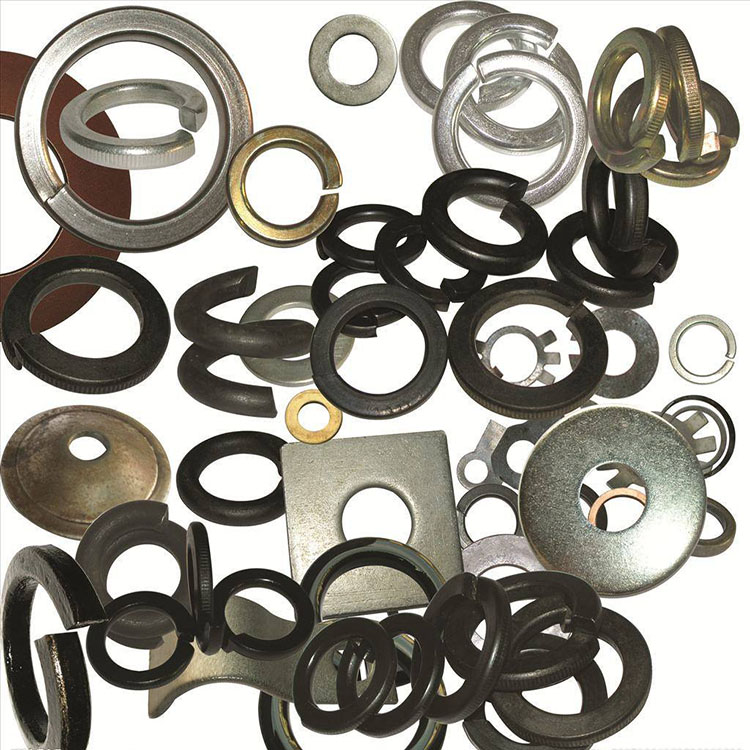Standards for Flat Washer Suppliers and Their Quality Assurance Practices
Understanding Flat Washer Standards and Choosing the Right Supplier
Flat washers play a critical role in many mechanical and construction applications. These simple yet essential components help distribute load, prevent damage to surfaces, and enhance the overall reliability of a connection. As industries increasingly rely on these small but mighty devices, understanding flat washer standards and selecting the right supplier becomes paramount.
What are Flat Washers?
Flat washers are disk-shaped plates with a hole in the center, designed to be used with nuts and bolts. They act as a cushion between the bolt head or nut and the material being fastened. By distributing the load over a wider surface area, flat washers significantly reduce the risk of damaging the material, such as wood, metal, or plastic. They are commonly used in construction, automotive, and machinery applications.
Standards for Flat Washers
Flat washers come in various sizes, materials, and specifications, and they are governed by several industry standards. Key standards include
1. ASTM International Standards The American Society for Testing and Materials (ASTM) sets various standards for flat washers, including material composition, dimensions, and mechanical properties. Common ASTM specifications for flat washers include ASTM F436 for hardened washers and ASTM F844 for general-purpose flat washers.
2. ANSI Standards The American National Standards Institute (ANSI) outlines standards for washer dimensions, including hole size and thickness. ANSI B18.22 describes the specifications for flat washers, ensuring they meet compatibility requirements with corresponding nuts and bolts.
3. ISO Standards The International Organization for Standardization (ISO) also provides guidelines for flat washer specifications. ISO 7089 and ISO 7090 specify the dimensions and tolerances for flat washers, making them suitable for various international applications.
4. DIN Standards In Europe, Deutsches Institut für Normung (DIN) has set standards for flat washers, including DIN 125, which covers general-purpose flat washers. Compliance with these standards ensures that washers meet engineering and safety requirements.
flat washer standards supplier

Choosing the Right Supplier
Given the wide range of standards and specifications, selecting the right flat washer supplier is crucial for ensuring quality and reliability. Here are some factors to consider when choosing a supplier
1. Industry Experience Look for suppliers with a long-standing presence in the industry. Experienced suppliers are more likely to understand the nuances of flat washer standards and can provide valuable insights into material selection and applications.
2. Quality Certifications Ensure the supplier is certified under relevant quality management systems, such as ISO 9001. Certifications indicate that the supplier adheres to strict quality control measures, providing assurance of the product's reliability.
3. Product Range Choose a supplier that offers a comprehensive range of flat washers, including different sizes, materials (such as stainless steel, plastic, and copper), and specifications. A diverse product range allows you to source all your washer needs from a single supplier.
4. Customization Options In some cases, standard washers may not meet specific project requirements. Look for suppliers offering customization options, such as tailored sizes or coatings, to ensure you get the exact product you need.
5. Customer Support Strong customer support is vital for addressing questions, handling orders, and resolving issues. A good supplier should have knowledgeable staff available to assist with technical inquiries and provide prompt support.
6. Reputation and Reviews Research the supplier’s reputation by checking online reviews and testimonials. Feedback from other customers can give you insights into the supplier's reliability, product quality, and overall service.
Conclusion
Flat washers may seem like small components, but their importance in various applications cannot be overstated. Understanding the standards governing flat washers and choosing the right supplier can make a significant difference in ensuring the success of your projects. By considering factors like industry experience, quality certifications, product range, and customer support, you can find a supplier that meets your needs and helps ensure the reliability of your mechanical assemblies.
-
Top Choices for Plasterboard FixingNewsDec.26,2024
-
The Versatility of Specialty WashersNewsDec.26,2024
-
Secure Your ProjectsNewsDec.26,2024
-
Essential Screws for Chipboard Flooring ProjectsNewsDec.26,2024
-
Choosing the Right Drywall ScrewsNewsDec.26,2024
-
Black Phosphate Screws for Superior PerformanceNewsDec.26,2024
-
The Versatile Choice of Nylon Flat Washers for Your NeedsNewsDec.18,2024










